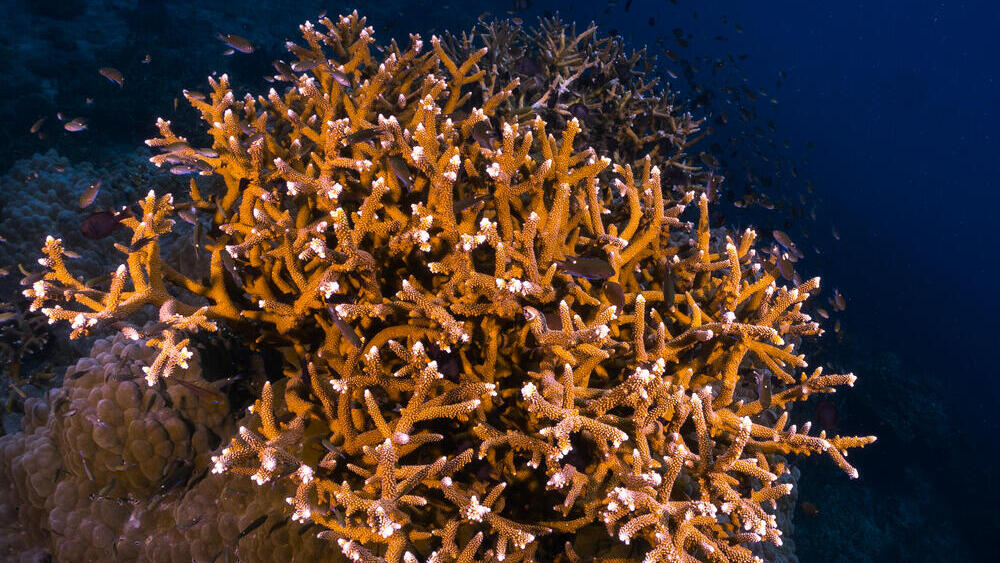Researchers in the Negev have unveiled an innovative approach to save coral reefs: transplanting stem cells from healthy corals to damaged ones, akin to bone marrow transplants in humans. This technique, developed in response to widespread coral bleaching caused by rising sea temperatures, holds promise for mitigating the devastating effects of climate change on marine ecosystems.
Recently, the Gulf of Eilat experienced its first major coral bleaching event, characterized by the loss of symbiotic algae that provide corals with nutrients and their vibrant colors. This phenomenon, often fatal to corals, has decimated reefs globally, including Australia's Great Barrier Reef.
Stem cell transplantation in coral reefs
(Video: Ben Gurion University)
Scientists at Ben-Gurion University, led by Dr. Benjamin Rosenthal and doctoral candidate Shani Talisa from the Comparative Immunology Lab, discovered that stem cell transplants could fortify corals against thermal stress. Their findings, published in Cell Reports, represent a groundbreaking intersection of medicine and ecology.
'We’re using medical tools to solve ecological problems'
“Mass coral bleaching events are occurring worldwide,” Talisa explained. “While Eilat’s corals have been relatively resilient, some species are more heat-tolerant than others. We asked ourselves: how can we transfer this heat tolerance from one coral to another? Our goal was to adapt medical methods for corals.”
The research team isolated stem cells from soft corals, specifically sea anemones, and transplanted them into others. These cells, in their undifferentiated state, have the potential to regenerate tissues and enhance the recipient coral's ability to withstand future heat waves. Preliminary tests showed that the transplanted cells were successfully integrated, increasing the likelihood of coral survival during subsequent thermal events.
“Just as bone marrow transplants can regenerate a human immune system, we aimed to repair corals by transferring resilience from one to another,” Dr. Rosenthal noted.
Stem cells, capable of differentiating into various tissue types, are central to regenerative medicine. The researchers demonstrated that these cells, once transplanted, could rebuild and strengthen coral tissue.
Get the Ynetnews app on your smartphone: Google Play: https://bit.ly/4eJ37pE | Apple App Store: https://bit.ly/3ZL7iNv
“We’re using medical tools to solve ecological problems,” Rosenthal added. “This research opens the door to new strategies for preserving coral reefs by growing, repairing and fortifying them through stem cell technology. The potential here is vast, and we’re just beginning to explore it.”
This breakthrough offers hope for coral reefs worldwide, providing a novel way to combat the growing threat of climate change to these critical marine habitats.






